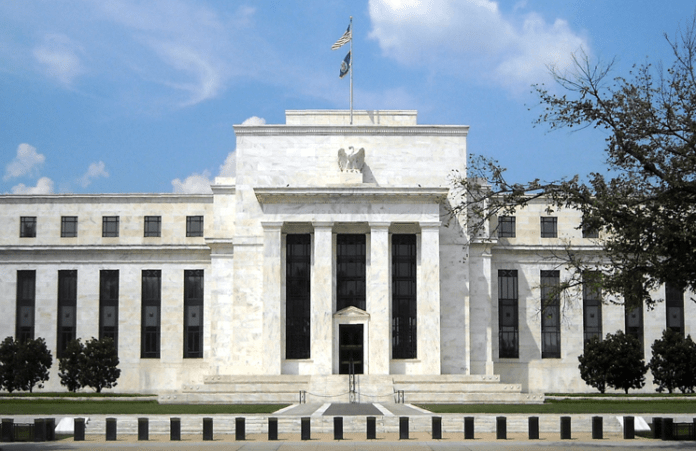The Federal Reserve is expected to raise its short-term interest rate for the first time in seven years, a move that local banks and investment firms say is long overdue and ultimately beneficial for continued economic growth.
Since December 2008, the Fed has kept its benchmark interest rate between zero and one-quarter of a percent – the lowest rates in history. Interest rates have been kept low to encourage borrowing and consumer spending during the recession.
“No one thought it would stay low for so long,” said Kevin Lycklama, the CFO of Riverview Community Bank. “They’ve been talking about raising rates over the last five or six years. This is almost a relief getting this first step going again.”
It is almost certain that the Federal Reserve will raise rates on December 16, when the Federal Open Market Committee, the policy-making committee that sets rates, finishes a two-day meeting. The Federal Reserve’s chairwoman, Janet Yellen, is scheduled to hold a news conference that afternoon. And the minutes of the committee’s last meeting, in October, essentially foretold a rate hike. “While no decision had been made,” the minutes read, “it may well become appropriate to initiate the normalization process at the next meeting.”
Lycklama and others say the Federal Reserve is incredibly data dependent and bases its’ decisions on different economic indicators such as the rates of unemployment, wage growth and job growth. The U.S. economy has, on average, added 200,000 new jobs for the past 67 months – data that make some, like Mike Beale, U.S. Bank’s managing director of investment management in the Western United States, think that a rate hike has been a long time coming.
“That’s a pretty good string of relatively strong job data,” Beale said. “We felt for some time that the economy now no longer needs these crisis level rates.”
The rate hike is expected to be small – around a quarter of a percentage point. The hike won’t have a big impact on investments and a consumer’s desire to take out loans or invest their dollars, sources say.
“It’s more symbolic,” Lyckama said. “It’s a sign of confidence in the economy.”
The most important impact the hike will have is reducing uncertainty consumers and the banking industry may have about the strength of the economy.
“Markets don’t like uncertainty,” said Robert Pool, principal of Fort Vancouver Investment Management.
“There are a lot of businesses and consumers who are on the fence and who have been waiting to take the loans they’ve been looking for or to buy the house they’ve been waiting for,” Lyckama added.
It could also help the stock market rally, even if for a short time.
A small rate increase is a cautious move, experts say, and the banking and investment sectors are more interested in how the Fed continues raising rates during 2016 – especially if the economy continues strengthening and future inflation can be stopped from increasing.
“The key thing that we’re going to be listening closely for is not whether they raise rates next week, but their comments on the path of interest rates going forward,” Beale said.
Sources said the recovery from the Great Recession has created a lot of uncertainty around wage growth, unemployment and inflation. That is causing the Fed to take a slow, gradual approach to raising rates back to healthy levels. Other rates indicative of a strong economy, like the 10-year Treasury Note, won’t be changing.
“Those rates are probably going to stay lower than they should,” Beale noted.
The rate increase won’t have a big, immediate impact on consumers and won’t affect mortgages and long-term investments.
“With big capital investments, the first couple hikes are not going to dramatically alter the decision making process,” said Michael Brown, an economist with Wells Fargo.
If a rate hike is announced, Lyckama said he wouldn’t be surprised if it caused a short burst of activity around short-term lending before the hike takes effect. There is already a lot of demand for short-term loans, he explained, and consumer knowledge that rates will be increasing could help drive more demand.
“[Consumers] don’t want to see interest rates go up. It will make loans and other products more expensive,” he said. “Now is the time to get in.”
Pool said his company isn’t advising clients one way or the other about the rate hike.
“We’re not too worried about it,” he said, because Fort Vancouver’s client portfolios are made up of short-term bond funds with the goal of capital preservation, not “high interest or high income.”
“We’ve set up these portfolios to last a lifetime,” Pool added.
Beale and others expressed cautious optimism about the strength of the economic and the slow, but steady, economic recovery. They see the first rate hike in eight years as another sign of that.
“It’s a good sign for us as a banking industry and the local community,” Lyckama said.




